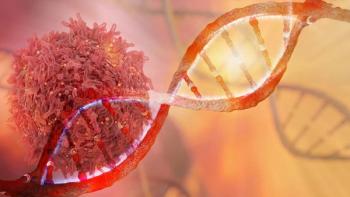
Online Database May Help Oncologists Interpret Cancer Mutations More Efficiently
Oncologists today now have a much greater understanding of the mutational landscape underlying some tumors. However, in many respects it is still a daunting task-one that may require more effective interpretation tools.
Oncologists today now have a much greater understanding of the mutational landscape underlying some tumors. However, in many respects it is still a daunting task-one that may require more effective interpretation tools.
Now, a new tool is available to all clinicians to help better advance precision medicine in the field of oncology. Researchers at Washington University School of Medicine have developed an online tool to help clinicians improve their chances of identifying important mutations in a patient's tumor and potentially connecting genetic errors with agents known to target them.
The online resource, called
“Oncologists trying to interpret the raw data are faced with an overwhelming task of plumbing the literature, reading papers, trying to understand what the latest studies tell them about these mutations and how they may or may not be important,”
The CIViC knowledgebase is an attempt to solve this problem. This is one of many efforts to collect and interpret such information. However, CIViC is the only one that appears to be entirely open access. Anyone is free to contribute and use the content as well as the source code. Currently, there are no restrictions on its use and it is designed to be a community exercise and a public resource.
Though anyone can submit a new piece of information or suggest edits to existing data, at least two independent contributors must agree that the new information should be incorporated, and one of those users must be an expert editor. Expert editors are not permitted to approve their own submissions. The CIViC website provides details about how new users may be promoted to expert editors and administrators.
To date, the site has seen more than 17,500 users from academic institutions, governmental organizations, and commercial entities from around the world. Since CIViC's launch, 59 users have volunteered their time to contribute their knowledge to CIViC, including descriptions of the clinical relevance of 732 mutations from 285 genes for 203 types of cancer.
Newsletter
Stay up to date on recent advances in the multidisciplinary approach to cancer.





































